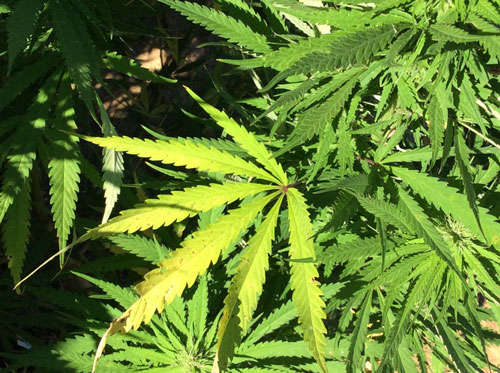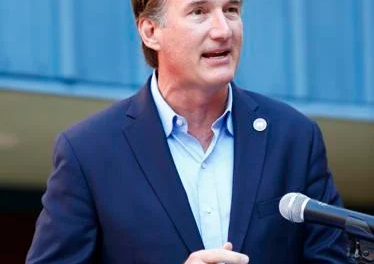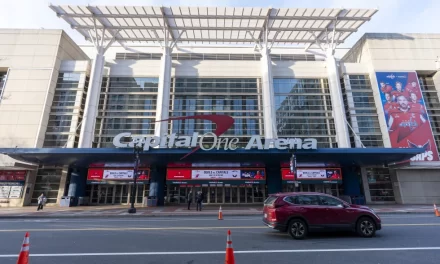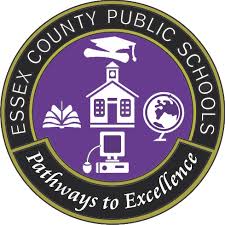RICHMOND, Va. (AP) — Virginia lawmakers passed legislation Wednesday that if approved by Republican Gov. Glenn Youngkin would allow recreational retail sales of marijuana to begin next year.
Under the bills, the state would start taking applications on Sept. 1 for cultivating, testing, processing and selling the drug in preparation for the market to open May 1, 2025, with products taxed at a rate of up to 11.625%. The legislation would create the state’s first retail market in a “responsible and thoughtful way,” said Del. Paul Krizek of Fairfax County, who carried the House version.
“And we’ve done so because it’s time to give Virginia’s $3 billion illicit market a run for its money. And it’s time to give Virginians access to a safe, tested and taxed product,” Krizek said on the House floor.
In 2021, Virginia became the first Southern state to legalize marijuana, adopting a policy change that allowed adults age 21 and up to possess and cultivate the drug. But because of political gridlock and policy differences since then, the state still hasn’t set up retail sales, which critics say is allowing illicit sales to continue to flourish.
Currently, home cultivation and adult sharing of the drug are legal. And patients who receive a written certification from a health care provider can purchase medical cannabis from a dispensary.
“I’ve said before, this is an area that I really don’t have any interest in. What I want us to work on are areas where we can find a meeting of the mind and press forward to the betterment of Virginia, and there are so many of them,” he told reporters in January.
His press office declined further comment Wednesday.
“This bill regulates an existing market,” said Greg Habeeb, a former Republican legislator now lobbying for the Virginia Cannabis Association, who thinks the governor will give the bill “a very serious look.”
Competing bills setting up a retail market were introduced at the start of the legislative session. The versions that passed Wednesday were identical and the result of compromise, Krizek and Senate lawmakers said.
Under the legislation, no group would get a head-start on kicking off retail sales, Krizek said.
Products would be taxed at a maximum rate of 11.625%, with 8% going to the state, 2.5% a local option tax and 1.125% to K-12 education, Habeeb said.
The 81-page bills allow for localities to hold a referendum on whether to prohibit retail marijuana stories. They also increase the amount of marijuana a person over 21 may possess from 1 ounce to 2.5 ounces.
The legislation contains a lengthy section on labeling and packaging, including requirements that products identify all ingredients, THC potency, possible allergens and contain a warning label. Products would have to be sold in child-resistant packaging.
The cultivation, processing, or manufacture of marijuana without the proper license would be a Class 6 felony, according to a review of the financial implications of the bill.
In past years, a sticking point in negotiations has been social equity provisions that would aim to give advantages in the licensing process to people and communities hurt by old marijuana laws and disproportionate law enforcement that focused on people of color.
Krizek said this version contains preferences for certain micro-businesses, a provision intended to encourage participation in the industry by individuals from historically economically disadvantaged communities.
“These preferences, which will be race-neutral, will offer significant economic opportunities for economically disadvantaged persons, including persons who have suffered hardship or loss due to this country’s war on marijuana,” Krizek said.
The legislation advanced mostly along party lines, with just a couple of Republicans backing it.
“The idea that any of this is going to get rid of the black market is laughable, with all due respect,” House Republican Leader Todd Gilbert said.
The bills have also drawn opposition from religious and socially conservative groups, which have raised concerns ranging from the harm of addiction to possible effects on children.
The 2021 bill that legalized marijuana passed in a chaotic rush, strictly along party lines, with no GOP support.
While there has been some Republican legislative support since then for setting up legal recreational sales, bills to do so have failed two years in a row.
“The bill may not be perfect, but it’s pretty good. And it’s a very, very good framework that I think the governor should consider,” Democratic Sen. Barbara Favola said.









